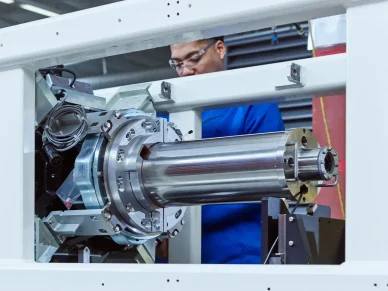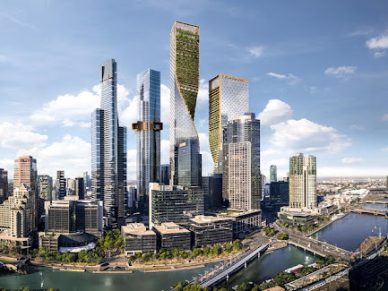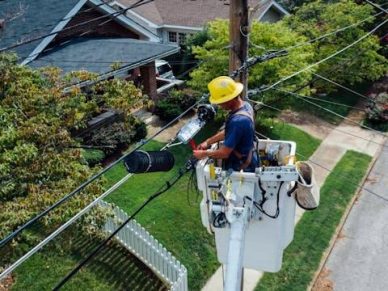
The world depends on transportation for the movement of goods and people across distances. However, people’s reliance on transportation systems has negatively affected the environment. According to data from the United Nations, the transport sector is responsible for producing approximately a quarter of the total global greenhouse gas emissions, and a significant contributing factor to this statistic is that 95% of the transport energy produced worldwide still comes from fossil fuels.
To reduce the environmental impact of the transportation sector, many transport industry and business leaders are investing in green mobility initiatives. This concept focuses on the movement of people and goods through sustainable methodologies and technologies that have lower ecological footprints. One way to achieve this is by adopting transportation management solutions. These solutions provide the following benefits:
Optimises Routes and Reduces Traffic Congestion
Traffic congestion is a pervasive issue in urban areas worldwide that not only leads to wasted time but also heightened levels of air pollution. The longer vehicles are idling in a gridlock, the more fuel they consume. This causes them to emit more greenhouse gasses and other harmful pollutants in the air.
To address this problem, transport management solutions use smart traffic systems to optimise routes for vehicles. Leveraging real-time data and sophisticated algorithms, these systems analyse traffic patterns and identify congestion hotspots to propose alternate routes to drivers or automatically reroute vehicles through dynamic navigation systems.
For instance, advanced traffic management systems utilise predictive modelling and historical traffic data to forecast congestion levels and adjust route recommendations accordingly. By integrating with GPS and mobile applications, these systems provide drivers with up-to-date information on traffic conditions and suggest the fastest routes available. This efficient redirection of traffic flow can significantly reduce travel time, decreasing fuel consumption and emissions.
Another type of transport management solution that helps in this area are adaptive traffic signal control systems, which dynamically adjust traffic light timings based on current traffic flows, minimising unnecessary stops and optimising traffic flow across intersections. This technology not only alleviates congestion but also enhances overall road safety by reducing the likelihood of accidents caused by traffic backups and erratic driving behaviour.
Reduces Air Pollution through Smart E-Mobility Solutions
Smart E-mobility solutions leverage technology and policy measures to mitigate the environmental impact of traditional combustion engine vehicles. They promote the widespread adoption of electric vehicles (EVs) through several strategies, including incentivising the transition to EVs through subsidies and integrating public charging infrastructure along highways. This can encourage more people to switch to EVs and lower their carbon footprint.
In addition to this, transportation authorities can endorse the use of electric public transportation so that public transport operators can add them to their fleets. Electric buses, vans, and taxis contribute to cleaner air and quieter streets in urban areas, making them ideal for reducing pollution hotspots in densely populated city centres.
Reduces Solid Waste Production by Automating Processes
Aside from lowering the production of harmful emissions caused by vehicles, transport management solutions can also improve environmental sustainability by reducing solid waste through automation. Traditionally, transportation and logistics operations heavily relied on paper-based documentation for tasks such as scheduling, dispatching, and record-keeping. This manual approach not only contributed to inefficiencies but also generated significant amounts of paper waste and other solid waste.
By adopting digital platforms and automated systems, transport management solutions streamline workflows and minimise the need for paper documentation. For example, electronic ticketing systems and digital logbooks enable seamless tracking of shipments and vehicle movements without the use of traditional paper forms. This not only accelerates administrative processes but also enhances accuracy and data accessibility, thereby improving overall operational efficiency.
Promotes the Use of Mass Transportation Systems
Mass transit, which includes bus, tram, and rail networks, offers several environmental and societal benefits compared to private vehicle travel. It can effectively reduce traffic congestion, lower emissions per passenger kilometre, and increase accessibility for urban residents. Despite these benefits, however, various factors can deter people from taking public transportation in urban areas.
Longer travel times, scheduling delays, and inconvenient payment processes can negatively impact people’s perception of public transit. As such, transport authorities use various transportation management solutions to enhance the efficiency and attractiveness of mass transit options. They leverage real-time data analytics and passenger feedback to optimise routes, schedules, and service frequencies to better meet demand and improve overall reliability. They can also streamline the passenger experience and make mass transit more convenient and accessible by incorporating integrated fare systems and contactless payment methods.
Saves Energy
Transport management solutions are increasingly integrating smart street lighting systems to enhance energy efficiency and sustainability in urban environments. Many advanced smart street lighting systems are often interconnected through IoT (Internet of Things) platforms, allowing for remote monitoring and management. Real-time data analytics enable municipalities to detect and respond to issues such as malfunctioning lights or areas with low foot traffic, thereby reducing maintenance costs and improving overall operational efficiency. This allows cities to identify and address lighting inefficiencies promptly, maintaining optimal illumination levels while minimising energy consumption and carbon emissions as a result.
Transport management solutions play a crucial role in mitigating and reducing the environmental impact caused by the transportation sector. When policymakers and transport leaders implement these solutions effectively, they can create a more sustainable transportation ecosystem and be one step closer to achieving the full benefits of green mobility.
















Leave a Reply